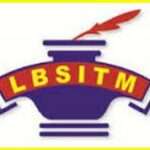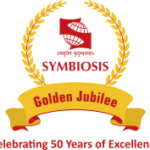The Xavier Aptitude Test (XAT) is one of the most prestigious and competitive entrance exams for admission into postgraduate management programs in India. This comprehensive examination is conducted annually by Xavier School of Management (XLRI), Jamshedpur, on behalf of Xavier Association of Management Institutes (XAMI). XAT not only serves as a gateway for XLRI but also for numerous other top-tier B-schools across India. here is an article on XAT Entrance Exam.
History of XAT:
The XAT exam has a rich history dating back to 1949 when XLRI first conducted the test. Over the years, it has evolved and gained widespread recognition as one of the toughest management entrance exams in India. XAT was started to select candidates for the flagship management program at XLRI and has since expanded to include numerous other prestigious B-schools.
Eligibility Criteria:
Before delving into the details of the XAT exam, it’s important to understand the eligibility criteria for the exam:
- Educational Qualification: To be eligible for XAT, a candidate must have a bachelor’s degree or its equivalent in any discipline from a recognized university or institute. There is no specific minimum percentage requirement.
Registration Process:
- Online Registration: Candidates need to visit the official XAT website and complete the online registration process. This includes providing personal information, educational details, and contact information.
- Uploading Documents: Candidates are required to upload a scanned photograph and signature as per the specified dimensions.
- Fee Payment: The application fee can be paid online through various modes, such as credit/debit cards or net banking.
- Choice of Programs: During registration, candidates can select the management programs they wish to apply for through XAT. This includes XLRI and various other B-schools.
- Print Confirmation: After completing the registration and fee payment, candidates should take a printout of the confirmation page for future reference.
XAT Exam Pattern:
- Sections: XAT comprises four sections: Verbal and Logical Ability, Decision Making, Quantitative Ability and Data Interpretation, and General Knowledge.
- Number of Questions: The total number of questions may vary from year to year, but it is usually around 100.
- Duration: The exam is of 3 hours duration. Additionally, there is a separate time limit for each section, which means candidates need to manage their time effectively.
- Marking Scheme: XAT follows a differential marking scheme. Correct answers are awarded more marks than incorrect ones. However, there is negative marking for wrong answers.
Syllabus for XAT:
- Verbal and Logical Ability: This section tests a candidate’s proficiency in English, including reading comprehension, vocabulary, grammar, and critical reasoning.
- Decision Making: XAT is known for its unique Decision Making section, which evaluates a candidate’s ability to make ethical decisions in complex situations.
- Quantitative Ability and Data Interpretation: This section assesses a candidate’s mathematical and analytical skills, including topics like algebra, geometry, statistics, and data interpretation.
- General Knowledge: This section evaluates a candidate’s awareness of current events, general knowledge, and business-related topics.
XAT Preparation Strategies:
- Understand the Exam Pattern: Familiarize yourself with the XAT exam pattern and marking scheme. This will help you plan your time and strategy effectively.
- Create a Study Plan: Develop a study schedule that covers all the sections of the exam. Allocate more time to areas where you need improvement.
- Practice Mock Tests: Mock tests are invaluable for XAT preparation. They simulate the actual exam environment and help you assess your strengths and weaknesses.
- Focus on Time Management: XAT is known for its strict time limits. Practice time-bound exercises to improve your speed and accuracy.
- Improve Decision-Making Skills: The Decision Making section is unique to XAT. Practice case studies and ethical dilemmas to hone your decision-making abilities.
- Stay Updated: For the General Knowledge section, read newspapers, magazines, and stay updated on current affairs and business news.
XAT Important Dates:
- Registration Period: Usually starts in August or September.
- Admit Card Release: Admit cards are usually available for download in December.
- Exam Date: XAT is typically held in the first or second week of January.
- Results: The results are usually declared in January or February.
Significance of XAT:
- XLRI and Other Top B-schools: XAT is the entrance exam for XLRI, one of India’s premier B-schools. Additionally, it is accepted by over 150 other top-tier management institutes across India.
- Rigorous Selection Process: XAT’s comprehensive exam pattern, including the Decision Making section, helps select candidates who possess not only strong academic skills but also ethical decision-making abilities and problem-solving skills.
- Diversity: XAT is known for its diverse student cohort. It attracts candidates from various academic backgrounds and experiences.
- Quality Education: Qualifying for XAT and gaining admission to a participating B-school ensures access to quality management education, world-class faculty, and strong industry connections.
- Career Opportunities: Graduates from top B-schools that accept XAT scores have access to lucrative career opportunities in the corporate world.
XAT Entrance Exam FAQ
IIM Bangalore students are provided with Accommodation on Campus in a Well-appointed Single Room in the Hostels.
Students are allotted a well-furnished single room. There is 24 hours internet connectivity, music room and laundry facilities are available at hostels for students. IIM Bangalore has a large and well-stocked library which also has access to various online study materials.
most of the new IIMs, including Udaipur and Raipur, plan to have air-conditioned hostels in their new hostels, unlike most of their older counterparts, including IIMs Ahmedabad (which has just a few air conditioned dormitories for students of short-term and PGPX programmes), Bangalore, Calcutta and Lucknow.










